Abstract
Patients chosen for study from an area of endemic goitre in Argentina were remarkable in that they had high retentions and high turnover-rates of iodide. In spite of this, their glands were capable of increased activity as a result of an administration of exogenous thyrotropic hormone. When dietary iodide was supplemented with additional iodide there was a slow fall in the radio-iodine retention as a new equilibrium state was approached. One patient who received 1,500 μg of iodide daily developed thyrotoxicosis after 32 days. The proportion of a single dose of iodide which is retained is constant below about 2 mg, but a decreasing proportion of the dose is retained when higher doses are given.
Much remains to be learned by taking advantage of the unique opportunities for study offered by patients who manifest the consequences of iodide deficiency.
Full text
PDF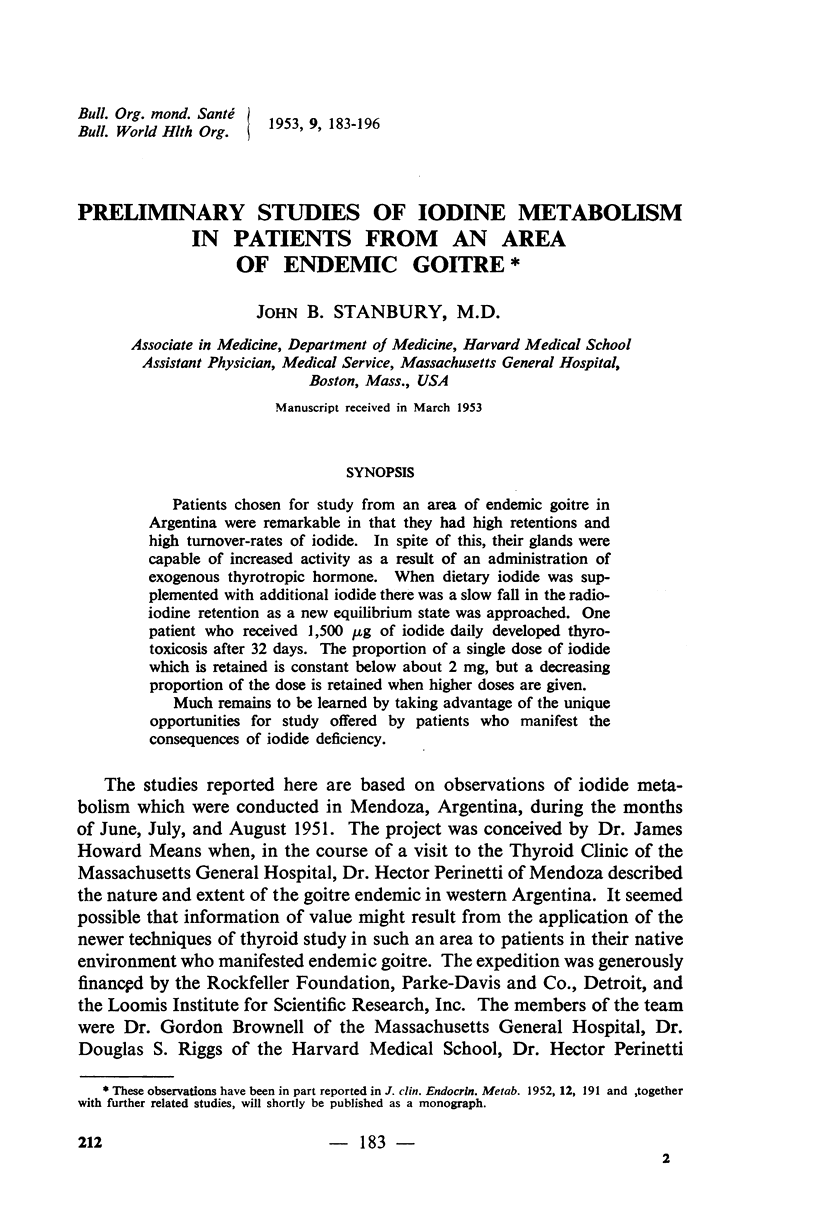
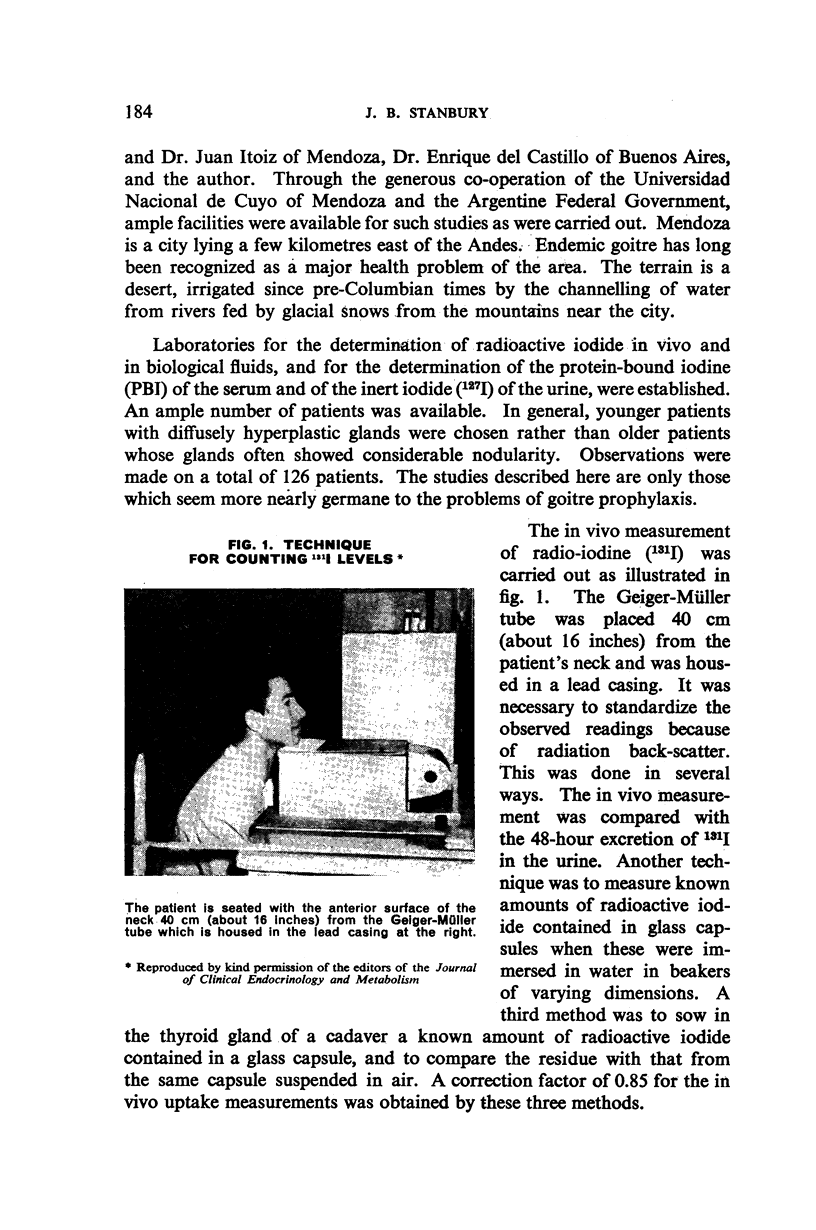
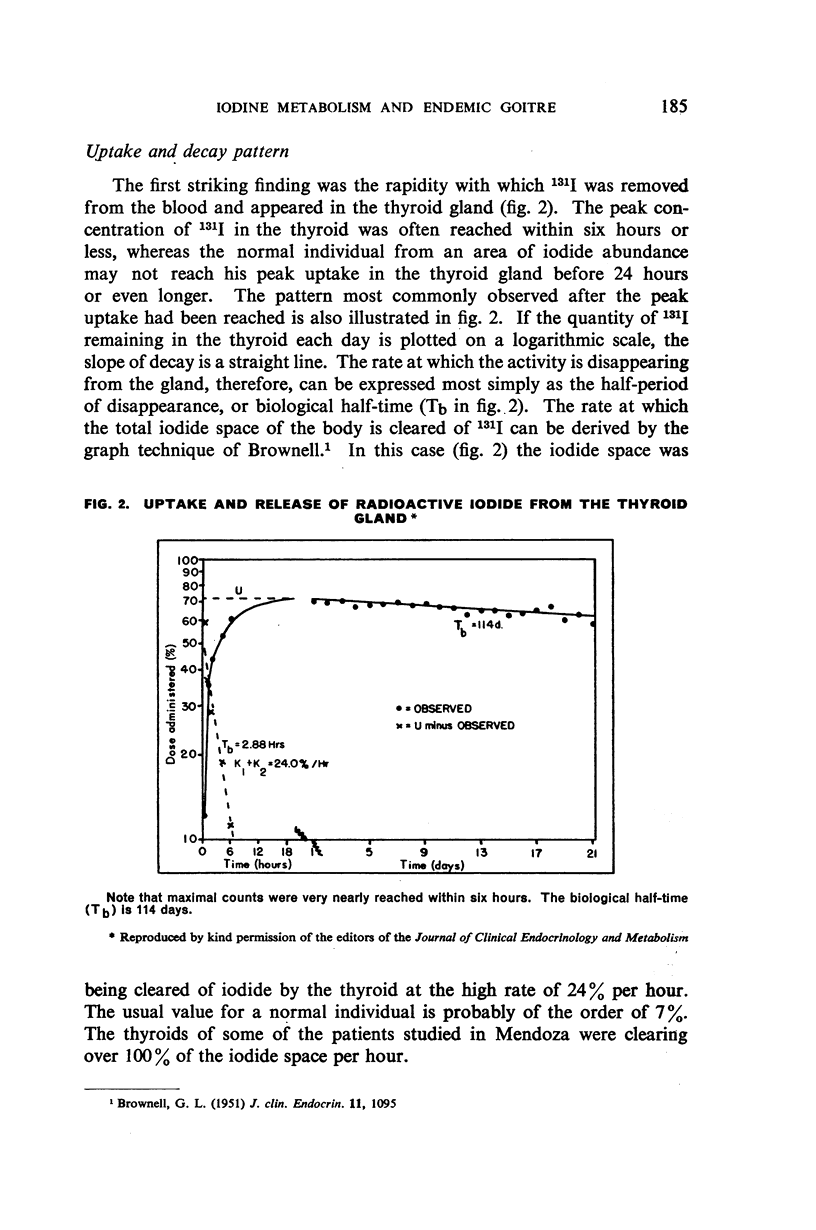
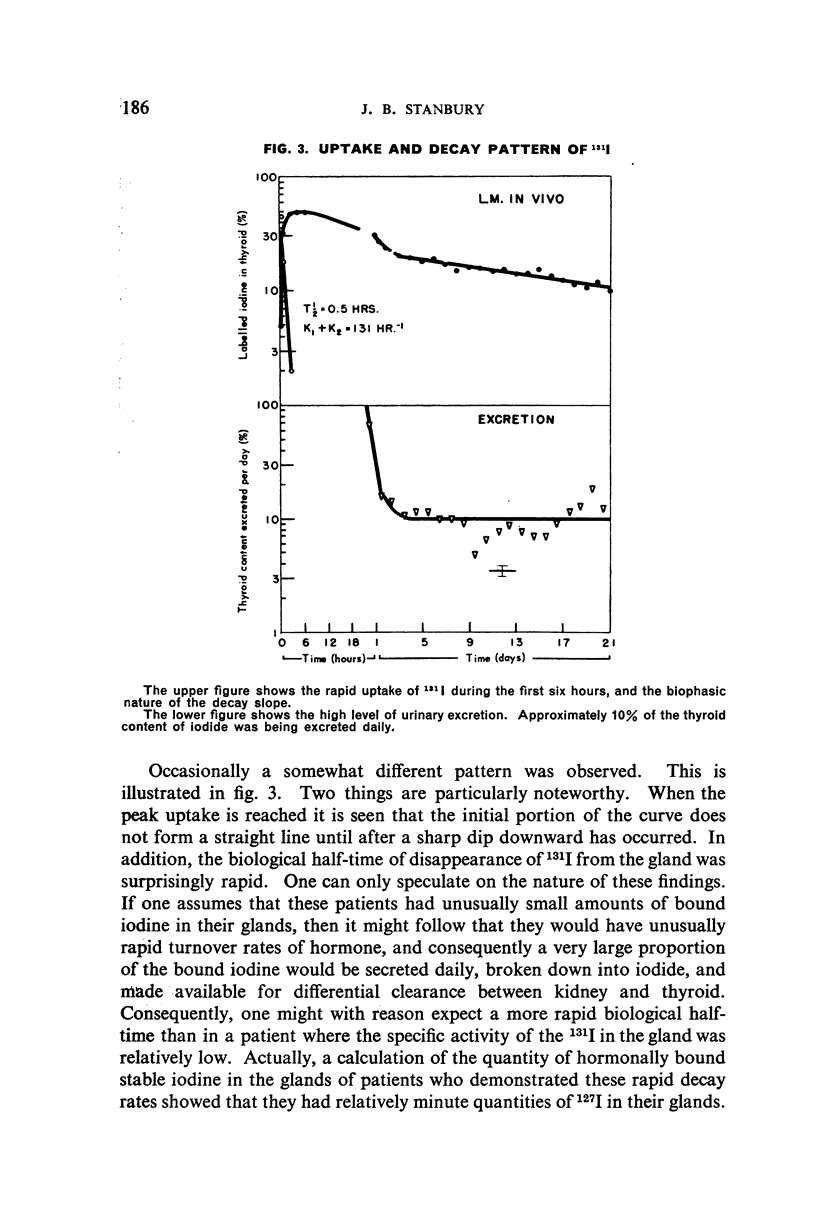
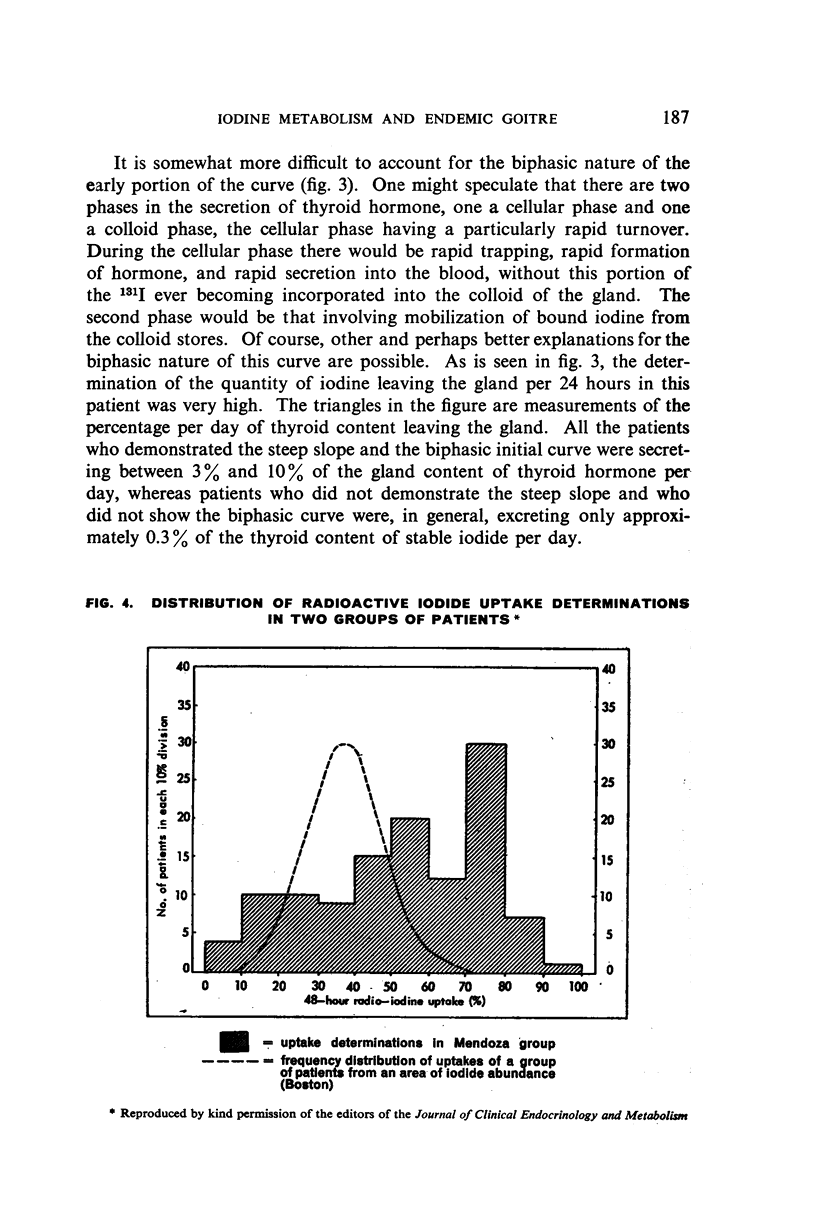
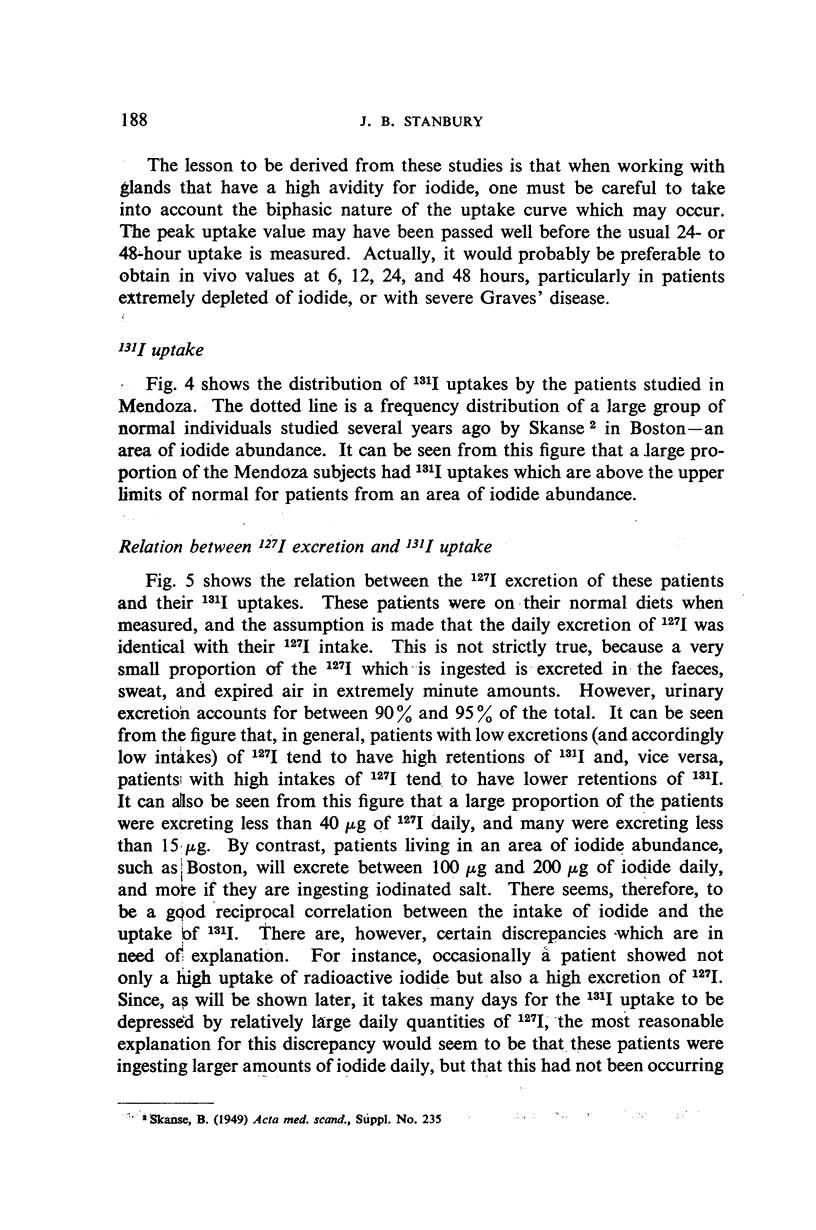
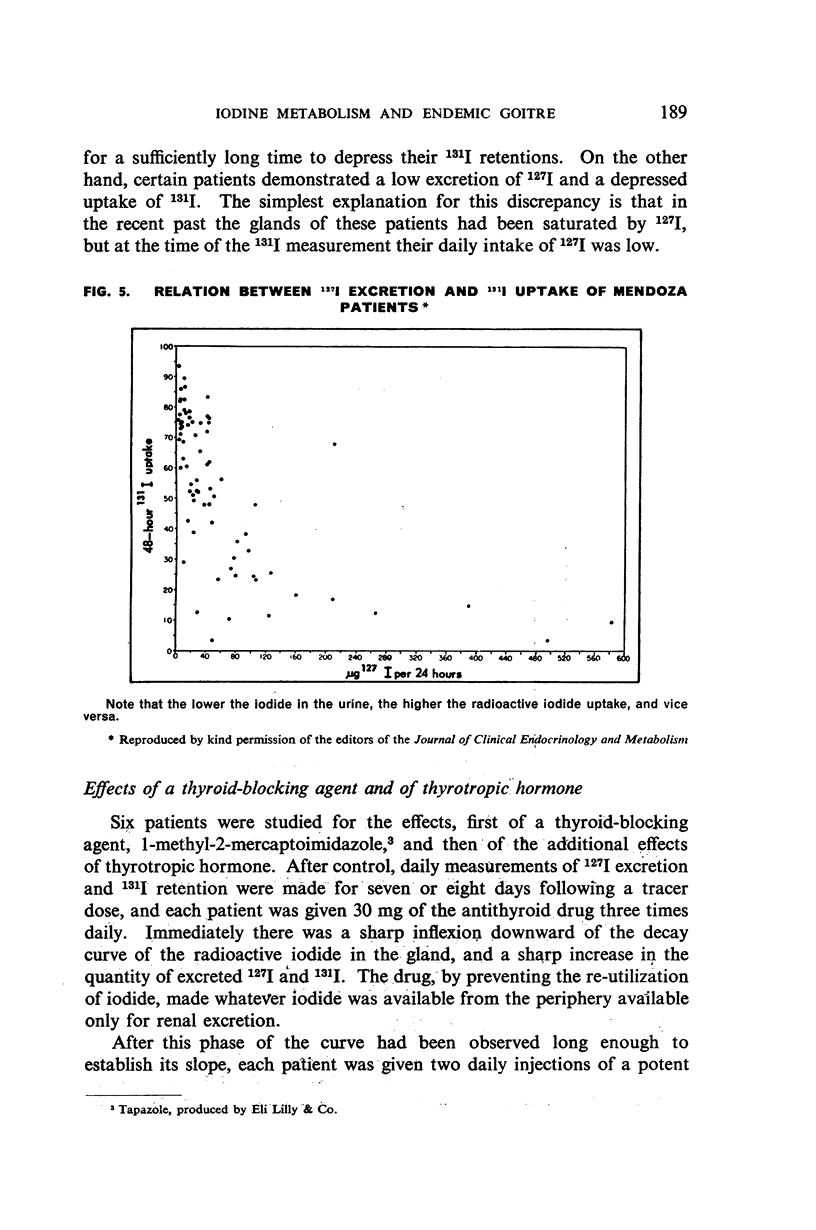
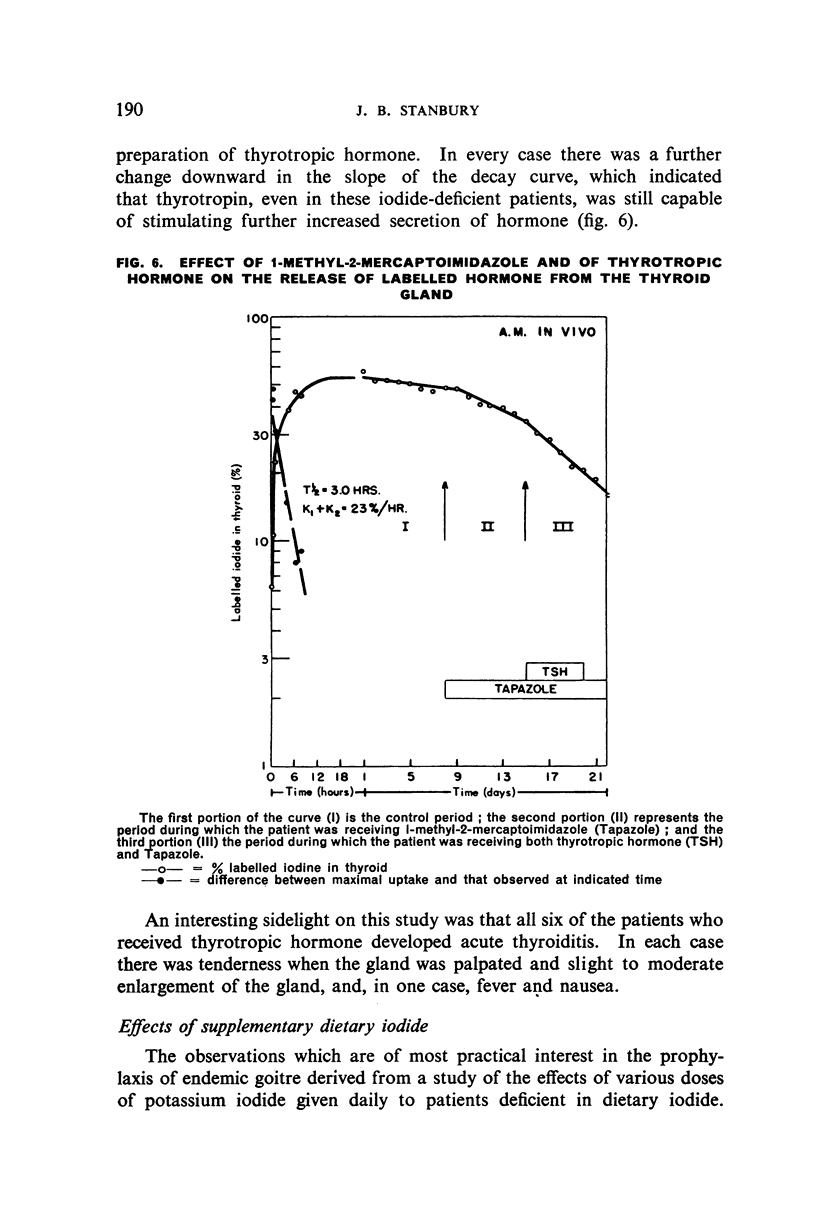
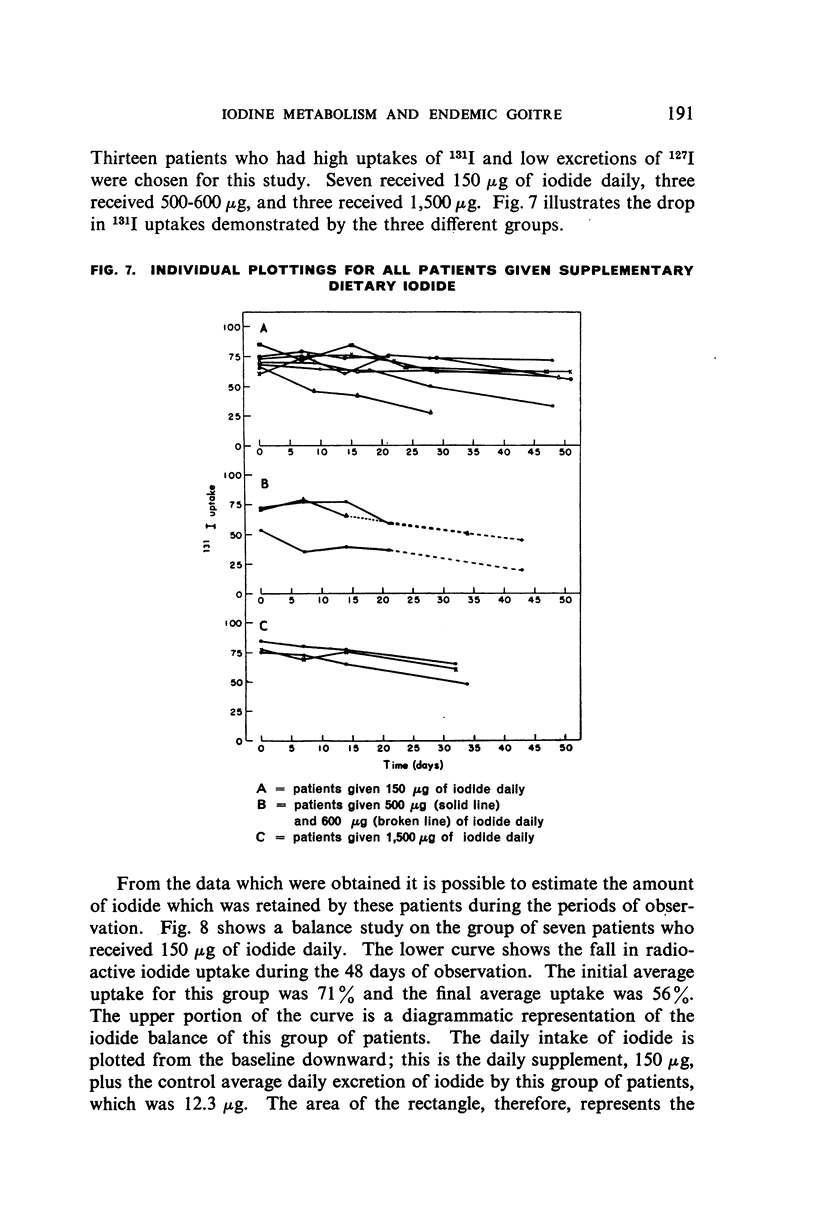
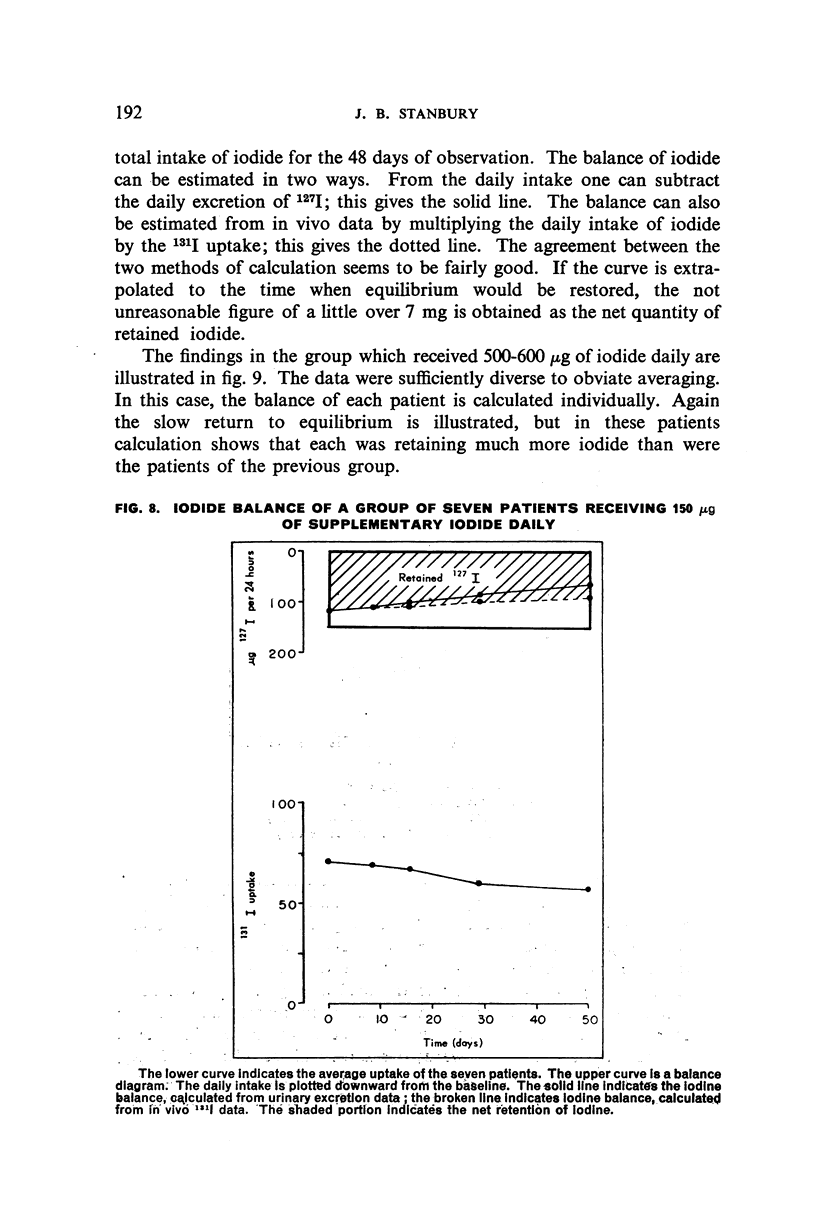
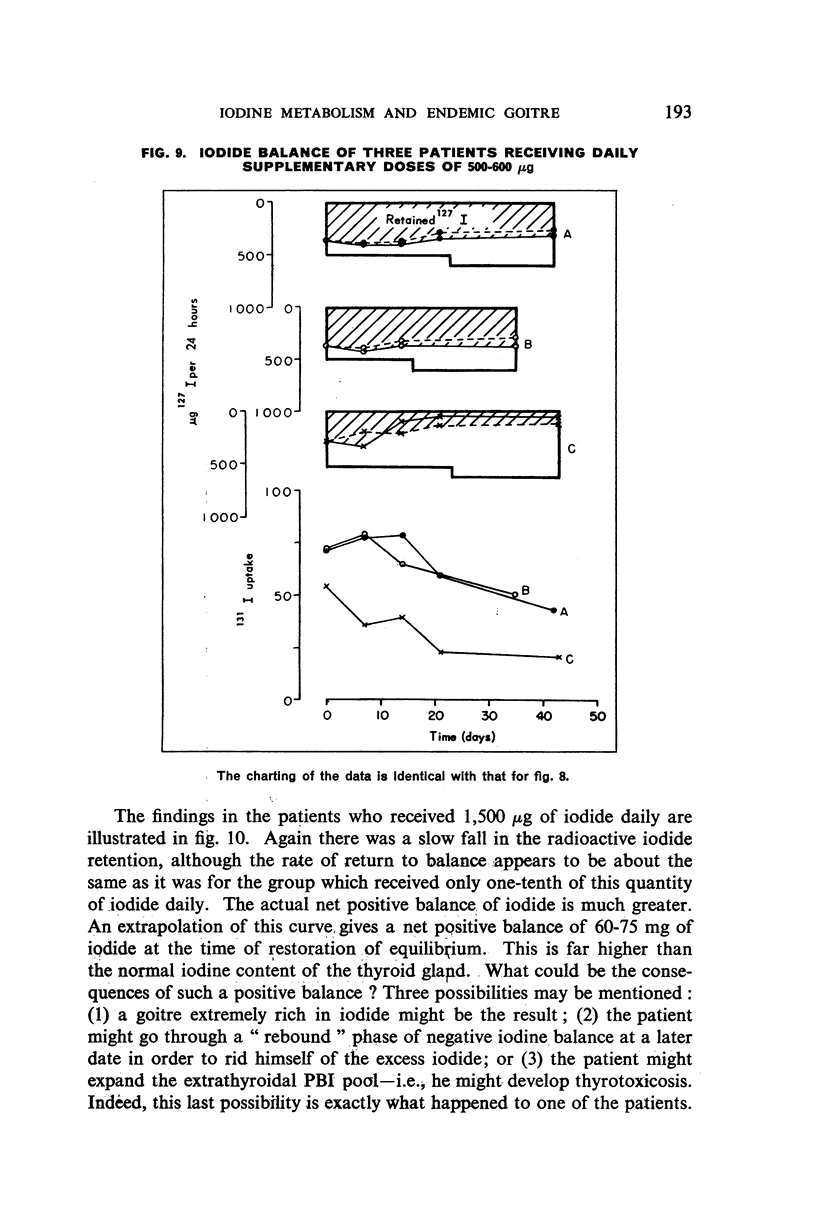
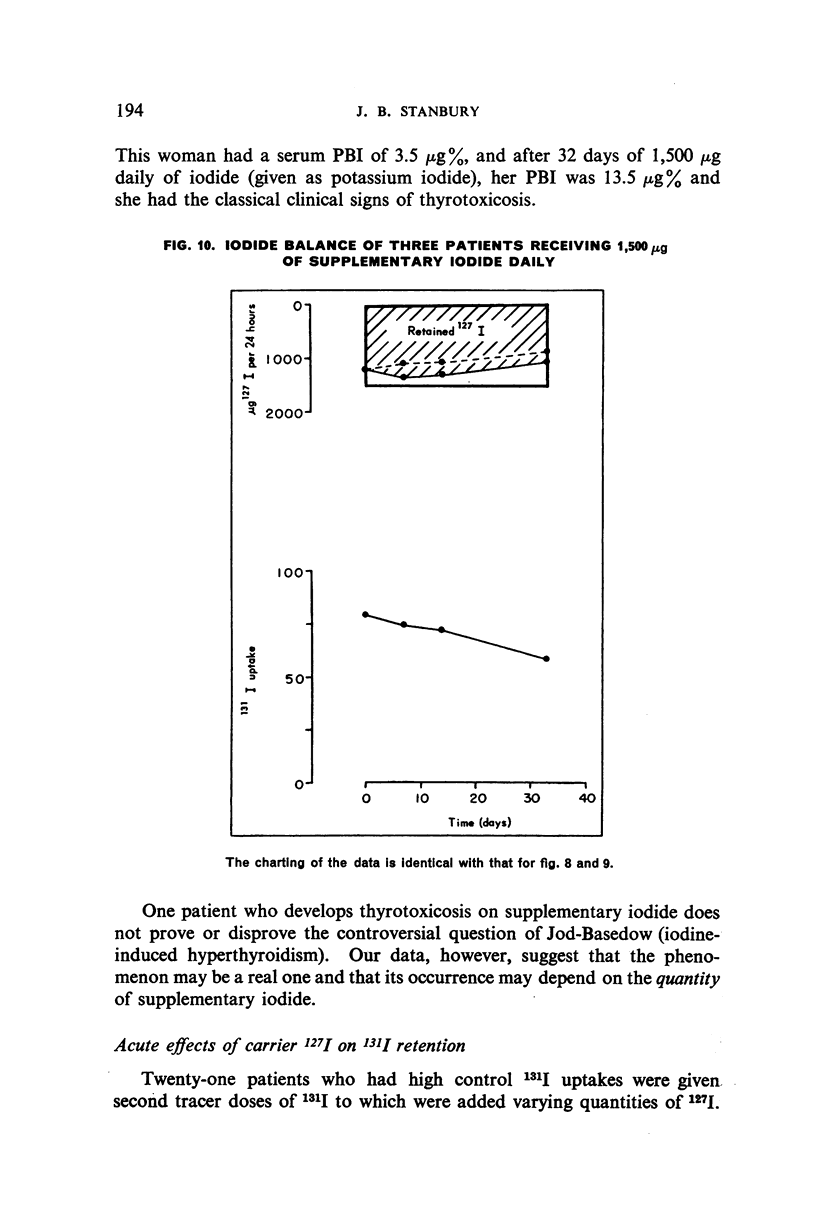
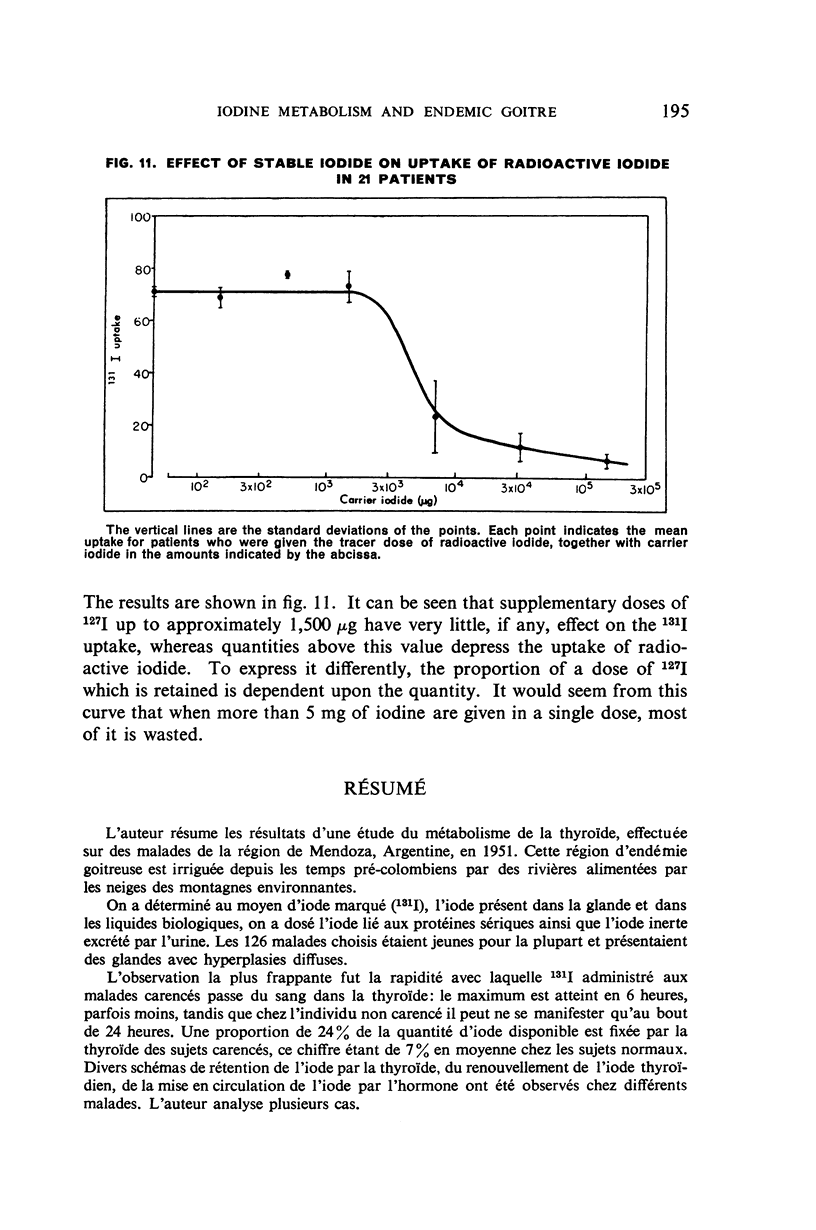
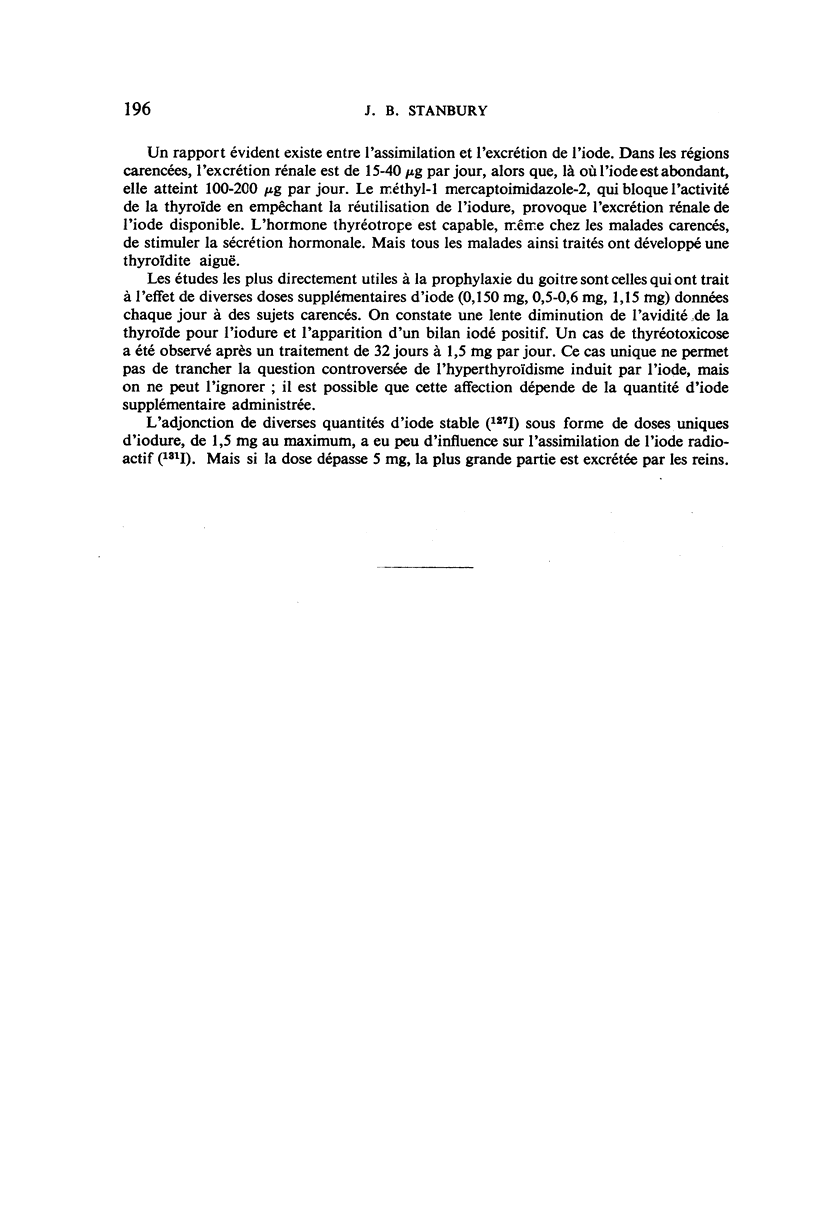
Images in this article
Selected References
These references are in PubMed. This may not be the complete list of references from this article.
- BROWNELL G. L. Analysis of techniques for the determination of thyroid function with radioiodine. J Clin Endocrinol Metab. 1951 Oct;11(10):1095–1105. doi: 10.1210/jcem-11-10-1095. [DOI] [PubMed] [Google Scholar]



